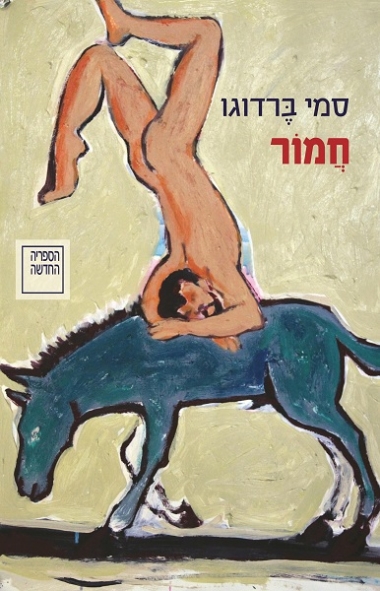
Donkey
“Life doesn’t keep its promises. Because of this, a donkey.”
Ruslan Isakov, an immigrant from Azerbaijan aged around 50, is hiding a donkey in his ramshackle backyard. Five months ago, while ambling idly around the village where he lives, he ran into some police officers who asked him to hold on to the donkey for a few minutes, until they come to pick it up. But no-one came, so since then the donkey has lived with him.
The donkey keeps Ruslan company for eight days in the month of June, 2018. The account of the care he takes of it becomes an enthralling story of heart-melting beauty. In parallel, Berdugo describes, with a daring rare in Hebrew literature, the sexual encounters between the hero and his only friend, an American whose name is Steve.
The years Ruslan has spent in the village since resigning his job without a thought for the future have been an ongoing attempt to develop a daily routine of here-and-now, freeing himself of the chase after what is beyond the present. He wants to escape from dependence upon what might happen in the future and its illusional horizon of hopes and expectations, as well as from being rooted in the past by adhering to family tradition.
His present condition is apparently an outcome of a day in 1994, when the 26-year-old Ruslan was still living with his parents and studying to be a practicala engineer. Repeatedly, the book returns to the events of that day, events that seem straightforward at first, but which gradually gain momentum, drama and suspense, speeding the reader to a sense of inevitable disaster.
Donkey is a remarkable happening in Hebrew literature. Like David Vogel in his late 1920s novel Married Life, Berdugo has invented a subversive, groundbreaking prose that rattles the conventional parts of speech and broadens the perceptibility of the language.

-
“Donkey is a daring literary act.”
-
“A great book, in its glorious language, in its two plot lines that together spin a super-Israeli story, and in the enigma that lies between them. ”
-
“This is an achievement that finds its expression in the creation of a new language.”
